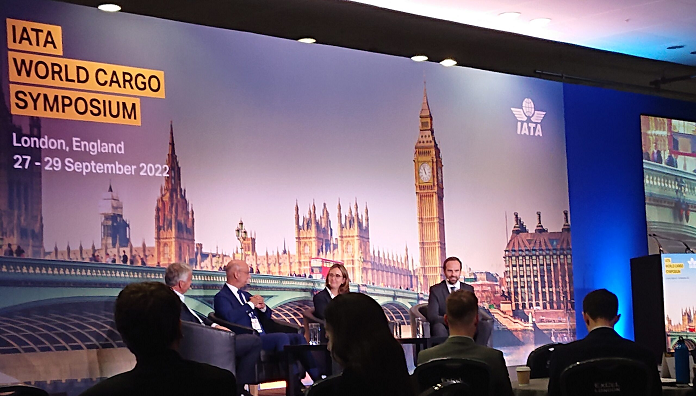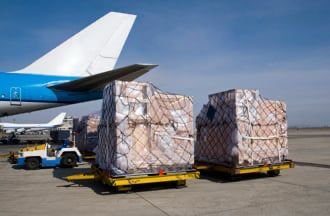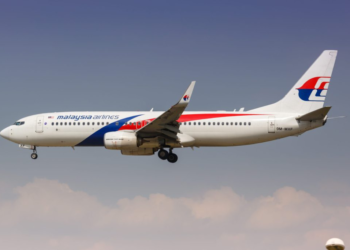Meeting customer requirements is the goal of every business but in air cargo it is a complex undertaking.
Shippers, freight forwarders and integrators are all part of the value chain, but each has specific needs. The challenge is heightened by cumbersome regulatory frameworks and outdated technologies.
A panel session at the World Cargo Symposium noted that reliability, consistency, and speed are common to all customers and a good place to start. And these are qualities inherent to integrated logistics. Moreover, global trade continues to grow despite geopolitical tensions and talk of a recession, making global solutions vital.
CMA CGM—one of the world’s biggest shipping lines—went into air cargo in 2021 as it searched for flexible, comprehensive solutions for its customers. The aviation arm has six freighters and has already announced an alliance with Air France-KLM, which has its own fleet of freighters. Together with the passenger aircraft in the Air France-KLM fleet, it means CMA CGM Air Cargo can offer its customers some 300 destinations. And yet, from a customer viewpoint, the relationship is with a single entity. The end result is a unified product that will be reliable and quick.
Integration relies heavily on data sharing, however, and that is never easy from either a regulatory or technical point of view. It is, however, essential, especially as e-commerce continues its robust growth. The panel was adamant that air cargo remains a people business, especially for the customer experience, but accepted that digitization is a must.
Nevertheless, investment in new systems will be a problem. New aircraft are always the top priority, especially as there are still so many old aircraft in cargo operations, all of which are expensive to operate and less environmentally friendly than next generation models.
Olivier Casanova, CMA CGM Air Cargo argued that there is an “investment wall in front of the industry.”
Even so, business models are evolving to make integration and collaboration more likely. Air cargo is a complex area that requires complex solutions and only multiple partners are capable of delivering such solutions. No one organization can do it alone. Each needs to add its expertise to an overall solution and then connect the dots for the customer.
Customers have become more demanding and need instant, flexible solutions, the panel concluded. If there is an aspect of their operations or needs that isn’t working then they need a different solution the next day—and not in a year or two.
Integrated logistics offer the opportunity to better manage the flow of goods and provide air cargo customers with an experience that will keep them coming back to an increasingly important element in every airline’s revenue stream.
Dorothea von Boxberg, chief executive of Lufthansa Cargo, said that the airfreight market may become less attractive to freight forwarders when rates drop. “It’s a lot more complicated to make the business profitable throughout the cycle of market ups and downs. It requires a lot of knowledge systems and investments.” She agreed that the markets will remain separate but pointed out that when one mode cannot offer everything a shipper needs, freight forwarders can look to integrated logistics.
Von Boxberg said that the focus of investment continues to be in their fleets and digital rather than branching out into other modes. “There are a lot of old freighters out there that need to be renewed over time. Digitalisation doesn’t cost quite so much but it is still an investment that is needed.” She said that while the current air cargo market isn’t consolidated, there will likely be some digitalisation consolidation, due to a number of smaller players. Von Boxberg added that Lufthansa’s customers now include more e-commerce shippers.
Michiel Greeven, executive vice president, DHL Express, said that customers are not necessarily seeking integrated logistics but rather reliability, consistency and speed. “We cannot offer completely integrated solutions,” added Greeven. “It’s simply too complex and probably not possible.” The B2B e-commerce supply chain will become more streamlined with smaller shipments going to the end customer, believes Greeven.
The panel also noted that cargo airlines have not significantly invested in other logistics modes. The panel also looked at the growing influence of e-commerce volumes in air cargo.







